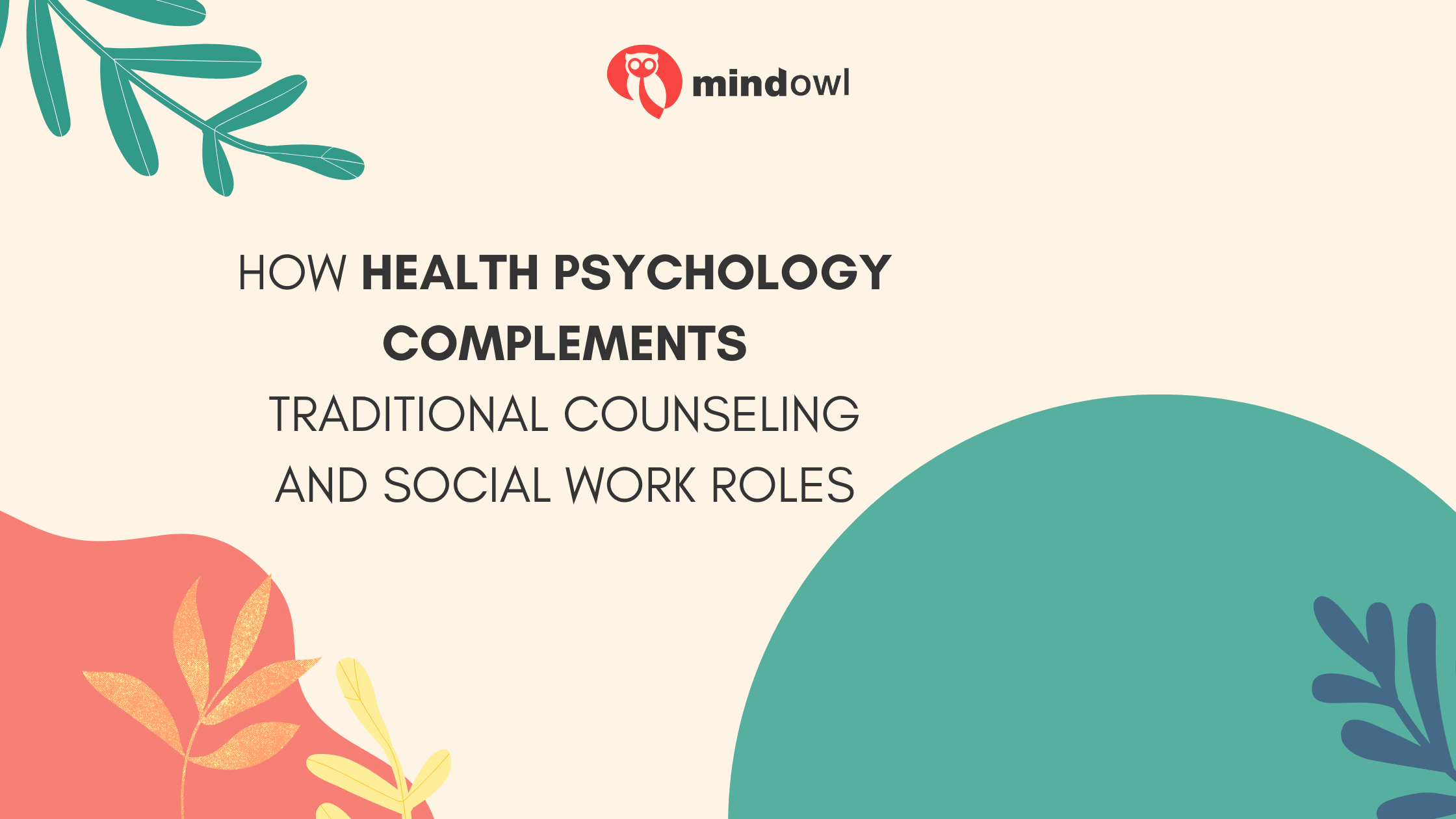Health psychology is a career path that focuses, simply enough, on the connection between a person’s mind and their body. It’s a healthcare discipline that is rooted in the connection between the mental and the physical.
If it sounds a bit wooey, there’s actually lots of research to back it up. What happens in your brain triggers chemical reactions that are felt throughout the entire body.
Reducing cortisol production in your mind, for example, can do more than just make you feel better emotionally; it can diminish your blood pressure and help you experience better overall health outcomes.
In this article, we take a look at how health psychology can complement traditional counseling and social work roles.
Health Psychology Overview
As mentioned in the introduction, health psychology is a healthcare discipline focused specifically on the ways that your emotions influence your physical health. This includes cardiovascular health, immune function, and recovery from injury or disease. There are many different kinds of careers with an emphasis on health psychology, health education, and related specialties:
- Community Health Worker
- Healthcare Administrator
- Mental Health Counselor
- Health Psychologist
Not only are health psychologists working around a proven connection in the world of healthcare, but they also have a clear and important role to play within the wider healthcare ecosystem.

The Connection Between Health Psychology, Traditional Counseling, and Social Work
Social work and traditional counseling have a long connection. To begin with, some social workers actually offer counseling services. There are many different areas of emphasis in social work careers, and in the psychology context, many will play a role that might appear complex to the untrained eye. Even in the broader world of social work, however, there are many points of overlap.
- A school social worker might make psychiatric referrals for a student dealing with depression.
- A social worker dealing with someone who has been in legal jeopardy might make a referral for addiction recovery or for anger management.
- A social worker employed in the healthcare setting might make referrals for grief counseling or anxiety.
There are so many different ways in which someone who needs social work might also need psychological assistance.
How Health Psychology Fits into the Mix
Health psychology can help improve outcomes in both health care and mental health care by serving as a bridge between the two.
Physical health care has focused on illness. Counseling has focused on thoughts and feelings.
Health psychology enters the equation to say that the two are connected. The actual phrase for this is biopsychosocial, a discipline of medicine that views health and illness as a result of complex interactions between physical and social factors.
A health psychologist can be brought into a treatment plan once physical conditions have been stabilized to provide the patient with behaviors and lifestyle adjustments that can lead to better long-term health outcomes.
Interventions in Practice
Health psychologists make specific health recommendations to improve outcomes. These will be individually specific but will focus on behaviors specifically linked to a reduction in cortisol or inflammation.
In the next few headings, we take a look at interventions that a health psychologist might recommend.
Increased Exercise
Exercise is a classic bridge behavior between physical and mental health. The physical benefits are usually obvious: weight control, strength building, and improved cardiovascular health. There are also psychological benefits.
Exercise is a mood-enhancement behavior that releases endorphins. Endorphins are a chemical that naturally reduces levels of cortisol and adrenaline in your body—chemicals responsible for stress, anxiety, and depression.
This will improve your health in the obvious way that you will experience fewer negative psychological symptoms, but it can also have a continuous impact on your physical health.
High levels of cortisol and adrenaline can increase inflammation in your body, slow your metabolism, encourage weight gain, and generally hinder a person’s ability to live a healthy lifestyle.
Stress Management Techniques
Depending on the symptoms of the patient, a health psychologist might also provide stress management techniques like breathing exercises, meditative practices, and other methods.
Not only are these techniques helpful in navigating acute stress, but they can again reduce inflammation levels and improve cardiovascular health.
Education and Empowerment
One of the best things about the health psychologists’ recommendations is that they are often entirely within the patient’s power to follow.
They do not always rely on medical equipment or prescription-strength medication. They are holistically centered practices designed to optimize a person’s behavior to align with what is in their best interest for both physical and mental health.
In that way, people who work with health psychologists often feel empowered to take more agency over their own long-term outcomes.

Health Psychologists as Part of the Healthcare Ecosystem
Working in collaboration with social workers and traditional healthcare workers, health psychologists provide an important resource toward long-term success.
Their interventions aren’t always focused on immediate results, but rather behaviors that foster success in the long run.
In a world where people are increasingly looking for holistic solutions to their physical and mental health problems, health psychologists are an important resource that anyone dealing with the healthcare system could benefit from.
If you are interested in a career in psychology, this unique discipline is certainly worth your consideration. There are a few things to keep in mind:
- The path to a career in health psychology opens many doors. The course of study that you will follow for this career path will start broad and narrow the further along you get. Because of this, you will pick up knowledge and credentials along the way that will allow you to work in many different psychological disciplines.
- It may take a while to get there. Health psychology careers are generally only accessible at the PhD level, which means you might need to go through ten or more years of college education before you are ready.
- Your future career is in high demand. Finally, health psychology professionals are highly sought out in the modern employment landscape. You should have no trouble finding work that is both personally and financially rewarding with this credential.
If you are ready to play an important role in modern healthcare, consider a career in health psychology.
Our own struggles in life have led us to this path of understanding the human condition. United by a shared curiosity for the mind and what it means to be human, we’ve each walked a journey shaped by personal challenges and a deep interest in helping others grow. Over the last eight years, our work has centred on exploring how meditative practices meet modern approaches to psychological wellbeing.

